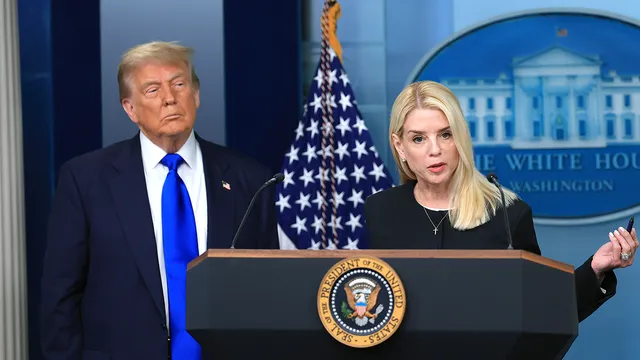
Supreme Court limits use of nationwide injunctions against Trump policies
2025-06-29 14:19- The Supreme Court's decision limited the ability of federal judges to issue nationwide injunctions.
- The ruling stemmed from Trump's executive order attempting to end birthright citizenship.
- This ruling signifies a notable shift in presidential power and federal judicial authority.
Express your sentiment!
Insights
In the United States, on June 26, 2025, the Supreme Court issued a significant ruling that curtailed the ability of federal judges to issue nationwide injunctions. This decision stemmed from President Donald Trump’s attempts to implement his executive order aimed at ending birthright citizenship. The Court, in a 6-3 decision, indicated that universal orders from lower courts likely exceeded the authority granted to them by Congress. This ruling followed a series of emergency appeals by the Trump administration and was seen as a major win for presidential power as it allowed for more streamlined execution of executive policies without the disruptive halting effects of nationwide injunctions. Justice Amy Coney Barrett, writing for the majority, clarified that while federal courts serve an essential role in resolving legal disputes, they should not exercise oversight of the Executive Branch's actions beyond their designated authority. The dissenting opinions from the liberal justices, particularly Justice Sonia Sotomayor, argued that the ruling promotes dangerous judicial practices that could undermine rights and accountability. The contentious nature of this ruling reflects a growing debate over the power dynamics between the judicial and executive branches in the American governmental structure. This case is particularly notable as it signals a shift in how federal judges can interact with the executive policies of a sitting president. It raises questions about the future implications for litigants who might seek nationwide relief against executive actions. Observers noted that the ruling could complicate efforts to challenge not just Trump’s policies, but could also set a precedent for similar actions by future administrations, thus changing the landscape of federal litigation. As the Court did not directly address the constitutionality of Trump’s birthright citizenship order, the ruling primarily impacts ongoing cases where federal courts were previously blocking various aspects of executive policies through sweeping nationwide injunctions. The true impact of this decision will unfold as lower courts react and further challenges are mounted against executive decisions across both Republican and Democratic administrations. Advocates for civil rights and immigrants' rights expressed concerns that this ruling could make it significantly more challenging to secure legal protections against potentially harmful policies.
Contexts
The recent Supreme Court ruling on nationwide injunctions has profound implications for the judicial system and the balance of power between federal and state governments. Nationwide injunctions are court orders that prohibit federal officials from enforcing a law or policy throughout the entire United States, rather than just within the jurisdiction of the court that issued the injunction. This has led to an ongoing debate about the appropriateness of such sweeping injunctions and their potential to disrupt the consistent application of federal law across the nation. Critics argue that these types of injunctions give too much power to a single judge, while proponents maintain that they are necessary to protect the rights of individuals against federal overreach in certain cases. In this ruling, the Supreme Court has clarified the situations in which nationwide injunctions may be applied, potentially tightening the standards under which they are granted. This could lead to a decrease in the number of cases where such broad injunctions are issued, thereby shifting the landscape of judicial power. The Court's decision could enforce a more restrained approach, encouraging lower courts to consider the broader consequences of their rulings and the principle of judicial restraint. As a result, this ruling could lead to a more consistent enforcement of federal laws, as injunctions would be limited in scope and more likely to be confined to local jurisdictions. Furthermore, this ruling raises significant questions about the role of the judiciary in the enforcement of federal policies. By curbing the ability of individual judges to issue nationwide injunctions, the Supreme Court could be signaling a shift towards a more centralized approach in the interpretation of federal laws. This may reduce the fragmentation that has arisen in recent years, where different regions of the country have been subject to varying interpretations of federal action, potentially leading to confusion and inconsistency. The impact of this decision may extend to the ability of individuals and organizations to mount legal challenges against federal actions, as the more stringent criteria could limit access to the courts for those seeking wide-ranging relief. As we move forward, it is crucial to monitor how federal and state courts adapt to this ruling. The implications for future cases that involve nationwide injunctions, particularly in high-stakes areas such as immigration, public health, and civil rights, will be significant. Stakeholders should prepare for a potential increase in litigation complexity, as the narrowing of nationwide injunctions may necessitate a more tailored approach to legal challenges against federal policies. Ultimately, the Supreme Court’s decision is likely to reshape the judicial landscape, reinforcing the essential balance of power and ensuring that federal laws are applied uniformly, while also respecting the judicial process as a key adjudicator of federal actions.